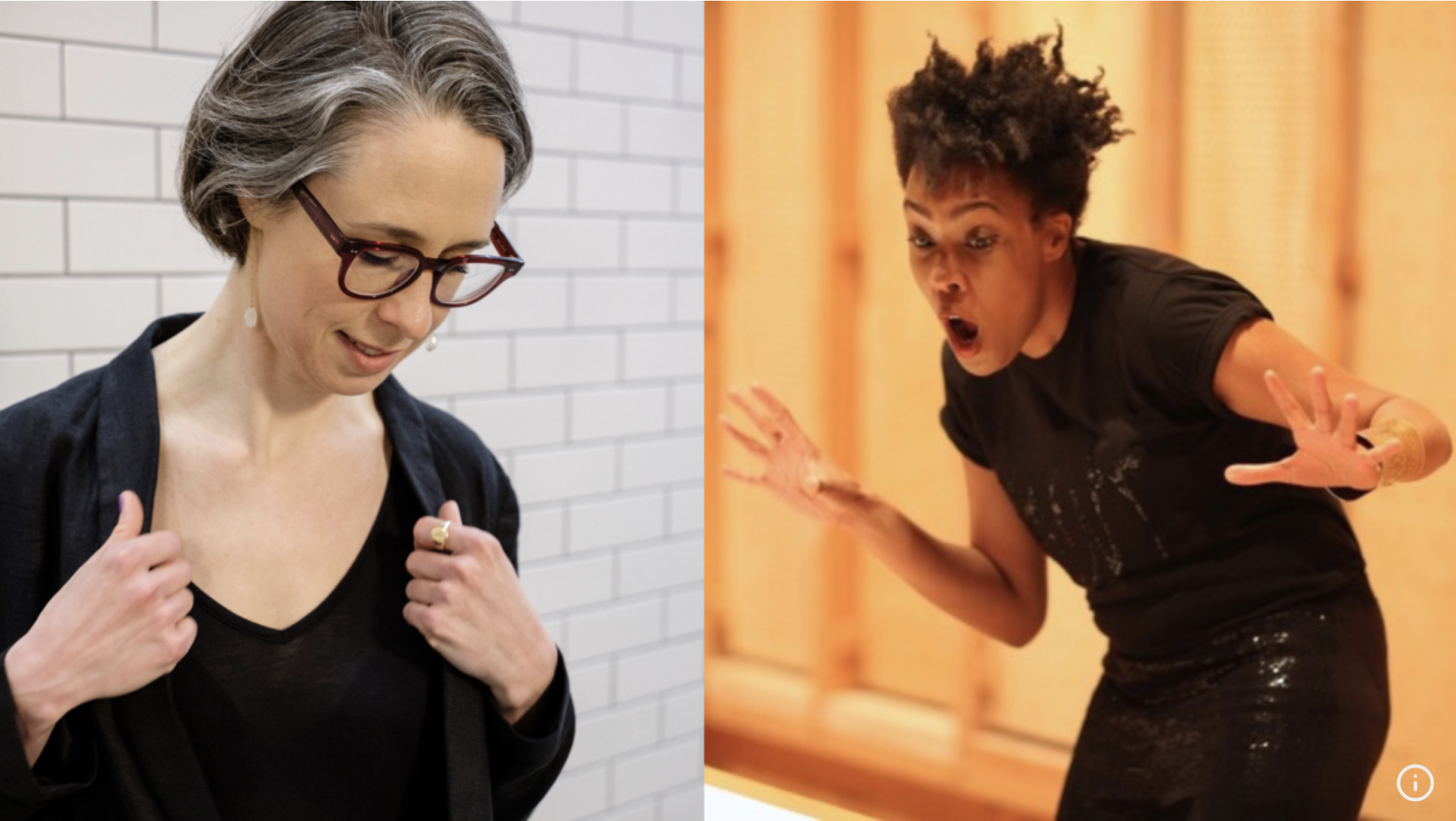Elaine Mitchener & Juliet Fraser at Darmstadt Summer Course 2023

Methods and Processes
Double Recital Elaine Mitchener and Juliet Fraser
Olly Wilson: Sometimes (1976)
Elaine Mitchener: Improvisation (on two texts by N. H. Pritchard)
Elaine Mitchener: AMAZING GRACE [reworked] (2022)
Elaine Mitchener (Voice)
–
Øyvind Torvund: Plans for Future Operas (2022/23)
Juliet Fraser (Soprano)
Mark Knoop (Klavier, Keyboard, Technical)
Sunday 13 August 2023
Orangerie – Darmstadt, Germany 19:30
Part of Darmstädter Ferienkurse 2023
www.internationales-musikinstitut.de
Read an interview with Juliet Fraser and Elaine Mitchener:
www.internationales-musikinstitut.de
ELAINE MITCHENER: AMAZING GRACE [reworked]
2023, is the 250th anniversary of the sermon that became known as Amazing Grace. This work (also known as New Britain), has become one of the world’s most iconic hymns, and one that also has a problematic past. The man who wrote the sermon that became Amazing Grace was John Newton, whose career in the Royal Navy led to working in the slave trade, captaining slave ships and investing in further operations. A spiritual conversion during an intense storm in 1748 did not initially dampen his zest for the slave trade but after joining the clergy and in the later years of his life he became an active abolitionist. He lived long enough to see the Slave Trade Act pass through parliament in 1807, the year of his death.
Commissioned by Cubitt Gallery (2018) for an exhibition of the artist Ain Bailey, AMAZING GRACE [reworked] is an arrangement for live & my pre-recorded multi-tracked voices. It allows me to reflect and respond to the circumstances which birthed the original hymn and its contemporary resonances e.g. in response to HM Treasury’s offensive 2018 tweet: ‘Fun Friday Fact’.
– Elaine Mitchener
OLLY WILSON: Sometimes (1976)
“The incredibly positive energy I’ve experienced at my first visit to Darmstadt compelled me to make a slight change to the programme. I wanted to perform something by Olly Woodrow Wilson Jr. An electronic work for tape and tenor soloist, it is great honour for me to present the work of this truly original compositional voice.”
– Elaine Mitchener
“The electronic tape was prepared at the University of California-Berkeley Electronic Music Studio. The recorded voice sounds on the tape were derived from the singing of William Brown, who passed away in 2004. Sometimes is dedicated to my parents, who, through love and patience, taught me how to sing.”
– Olly Wilson
ELAINE MITCHENER: IMPROVISATION ON TEXTS BY N. H. PRITCHARD
A friend introduced me to the work of NH Pritchard a few years ago. I was stunned by what I saw and what I read. Erica N. Cardwell explains (in Brooklyn Rail) Jazz poetics, the formative tradition rooted in the Black Arts Movement, has contributed a sense of energetic permission towards experimental transcendence, specifically for Black voices from within the diaspora. In N.H. Pritchard’s two works, The Matrix Poems: 1960–1970 and EECCHHOOEESS, readers encounter poems that exemplify the literary innovation of this era—a commitment to the pursuit and study of sound and a symbolic resistance to legibility. Pritchard’s poetry illustrates a specific tenet of jazz poetics: words are more malleable when deconstructed.
Pritchard’s background in art history—with degrees from New York University and Columbia University, born and raised in New York—is evident when one flips through the pages of his books. The poems contain sparse stanzas or hunks of verse, with individual letters often spaced apart, sometimes singled out onto one page with zero punctuation. For some seeking traditional, narrative-driven work, this notion might appear antithetical to audience connection. But there is much more to be gathered from the sense of refusal found in these poems. As the poet describes in his opening page of The Matrix, “Words are ancillary to content.” Despite this, words remain, their sound released from contrived sequences. The Matrix introduces this break.”
– Elaine Mitchener
